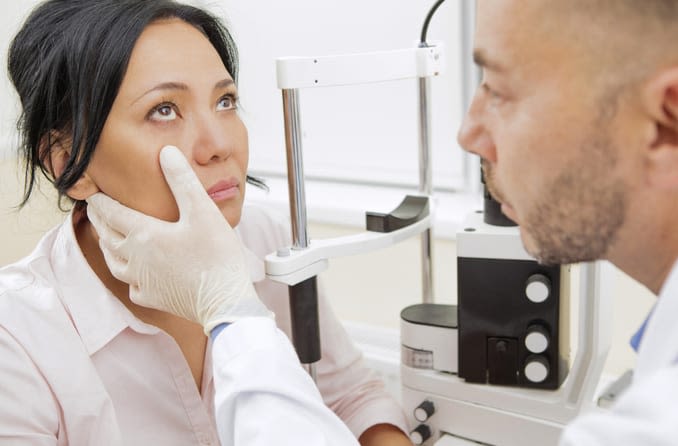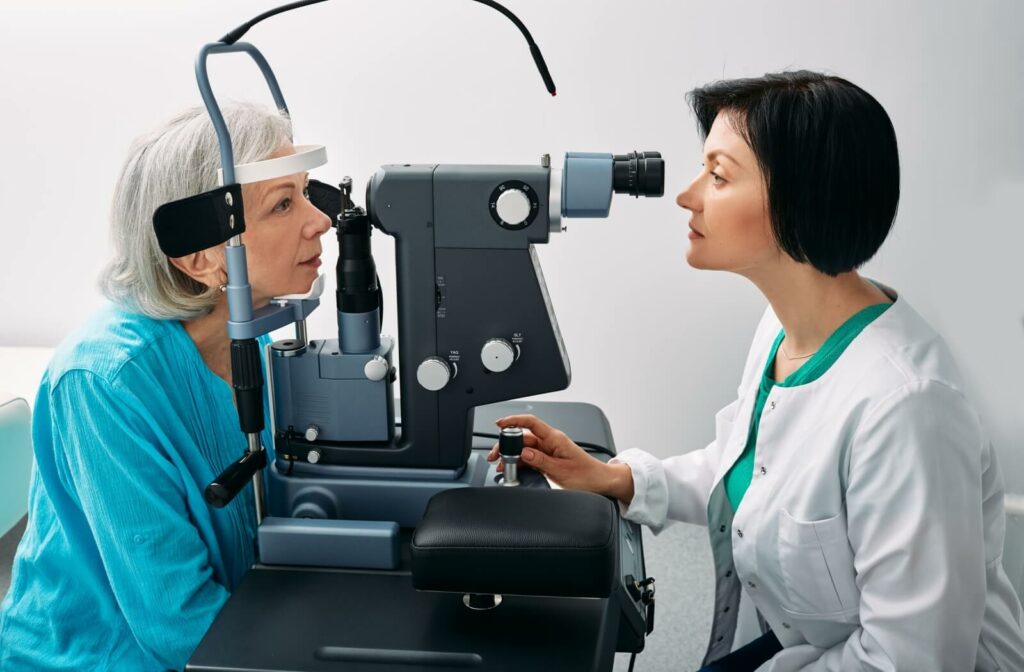Discover Advanced Providers at Opticore Optometry for Eye Health
Discover Advanced Providers at Opticore Optometry for Eye Health
Blog Article
Understanding the Comprehensive Role of an Optometrist in Modern Eye Treatment
In the developing landscape of healthcare, the scope of an optometrist's role has considerably broadened, prolonging well past the boundaries of traditional vision improvement. With innovations in modern technology and a boosting emphasis on precautionary care, optometrists are integral in identifying and taking care of persistent eye conditions, while likewise involving in early illness discovery. Their experience in sophisticated analysis techniques such as optical comprehensibility tomography is indispensable. But exactly how do these responsibilities converge with their duty in promoting general eye wellness, and what does this mean for person end results in a collective healthcare setting?
Expanded Extent of Technique
In current years, the duty of optometrists has advanced significantly, with lots of professionals currently accepting an expanded range of method that extends beyond typical eye examinations. Their obligations currently include a large range of solutions, including prescribing medications for eye problems, managing chronic eye conditions, and performing small medical procedures.
Even more, eye doctors are currently a lot more associated with collaborative treatment, functioning very closely with ophthalmologists, medical care medical professionals, and other healthcare specialists to ensure holistic individual treatment. This interprofessional collaboration is vital in taking care of complicated situations that call for a multidisciplinary strategy. Furthermore, eye doctors are playing a pivotal function in public health campaigns, such as vision screenings and eye wellness education, targeted at boosting community health and wellness outcomes.
The increased scope of practice for eye doctors not just improves their capacity to provide detailed treatment but also attends to the expanding need for efficient and obtainable eye care solutions, contributing to total healthcare improvements.
Early Disease Detection
Early detection of eye illness is progressively coming to be a focal factor in the increased role of optometrists. As primary eye treatment carriers, optometrists are uniquely placed to identify early indications of ocular problems such as glaucoma, macular deterioration, diabetic retinopathy, and cataracts. This crucial role is vital, as early medical diagnosis can substantially boost the administration and diagnosis of these problems, possibly avoiding vision loss and boosting individual end results.
Optometrists utilize thorough eye assessments to find subtle modifications in vision and eye wellness. These examinations frequently include assessments of aesthetic skill, intraocular stress, and retinal health. The capability to acknowledge early indications of systemic health and wellness concerns, such as hypertension and diabetic issues, with ocular indications even more underscores the importance of normal eye examinations. Early treatment is not just advantageous in maintaining vision but additionally in minimizing medical care expenses connected with sophisticated disease treatments.
In addition, optometrists play a vital function in person education and learning, highlighting the significance of regular eye evaluations as part of general wellness upkeep. By fostering a proactive method to eye care, optometrists contribute considerably to public wellness, making certain illness are captured and handled properly prior to they can proceed.
Advanced Diagnostic Strategies
Advanced diagnostic methods have changed the practice of optometry, enabling practitioners to spot and keep an eye on eye diseases with unmatched accuracy. These improvements have actually changed the optometric landscape, enabling extra advanced evaluation and treatment techniques. Technologies such as optical comprehensibility tomography (OCT) provide high-resolution, cross-sectional photos of the retina, facilitating early detection of problems like glaucoma and macular degeneration. This non-invasive method has actually ended up being essential in modern optometry, offering thorough insights into retinal layers.
One click here now more vital innovation is electronic retinal imaging, which records thorough views of the retina using high-def cams. This modern technology is critical in identifying adjustments in retinal framework with time, thus assisting in the administration of problems like diabetic person retinopathy. Visual field testing, enhanced by computer-aided systems, permits precise mapping of a person's visual field, crucial in tracking and detecting glaucoma progression.
Corneal topography, another noteworthy diagnostic device, creates in-depth maps of the cornea's surface. This is particularly helpful in fitting call lenses and preparing refractive surgical treatment. These advanced analysis methods jointly allow optometrists to give positive, read what he said targeted care, ensuring far better individual end results and enhancing their essential role in eye wellness administration.
Managing Persistent Eye Conditions
Taking care of persistent eye conditions is a foundation of optometric care that calls for a detailed understanding of different eye illness and their lasting ramifications. Eye doctors play an essential role in surveillance, diagnosing, and managing conditions such as glaucoma, diabetic person retinopathy, and age-related macular degeneration. These problems, if left neglected, can result in substantial aesthetic impairment or loss of sight, highlighting the critical relevance of continuous treatment and administration.
Optometrists utilize a series of diagnostic tools, consisting of optical comprehensibility tomography (OCT), visual area testing, and fundus photography, to examine the development of these chronic conditions. By carefully monitoring modifications in eye health, optometrists can change therapy strategies to minimize disease progression. This might include suggesting drugs, recommending lifestyle adjustments, or coordinating with ophthalmologists for medical treatments when required.

Duty in Preventive Treatment
Precautionary care is a basic element of optometry that concentrates on maintaining eye health and wellness and protecting against the beginning of ocular diseases. Eye doctors play an essential duty in very early discovery and prevention, using routine eye evaluations to identify threat aspects and refined adjustments in eye health. Eye Doctor. These examinations are not just regarding vision correction however encompass a thorough evaluation of eye features and structures, making it possible for the recognition of conditions such as glaucoma, cataracts, and macular deterioration at an onset
Along with diagnostics, optometrists educate blog clients on lifestyle options that promote eye wellness, such as correct nutrition, UV defense, and the value of normal eye examinations. They suggest on the right use digital tools to stop electronic eye strain, an expanding concern in the digital age. Eye doctors also supply guidance on protective glasses for work and leisure tasks, reducing the threat of injury.
Preventive eye treatment encompasses systemic health issues that show up in the eyes, such as diabetic issues and high blood pressure. By collaborating with other health care professionals, optometrists contribute to holistic client treatment, emphasizing the interconnectedness of ocular and systemic health and wellness. This proactive approach is vital in guarding visual acuity and overall well-being.
Final Thought
Optometrists currently inhabit a pivotal role in modern eye care, characterized by an expanded scope that consists of identifying and handling chronic eye conditions, prescribing medications, and carrying out minor surgeries (Eye Doctor Optometrist). Their proficiency in early disease detection is boosted by innovative analysis strategies such as optical comprehensibility tomography and electronic retinal imaging. By highlighting precautionary care and patient education, optometrists contribute considerably to total eye wellness, teaming up with various other health care professionals to ensure reliable and detailed client outcomes

In addition to diagnostics, eye doctors educate individuals on lifestyle options that promote eye health and wellness, such as proper nourishment, UV protection, and the relevance of regular eye exams.Preventive eye treatment extends to systemic health and wellness concerns that manifest in the eyes, such as diabetes mellitus and hypertension.Optometrists currently occupy an essential duty in modern eye treatment, identified by a broadened extent that includes identifying and taking care of chronic eye conditions, suggesting medications, and carrying out small surgical procedures.
Report this page